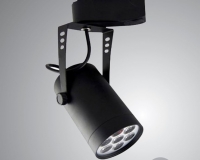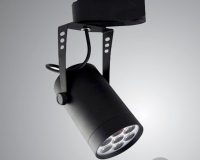The 40th anniversary of National Union in Quang Tri Province
Top News
Mr. Nguyen Quan Chinh, Vice Chairman, People's Committee of Quang Tri Province came to visit the site of LED installation.
FRIday - 23/01/2015 11:26
- Viewed: 4377
Panasonic “Smart Town” In Japan Centered Around Solar Energy & Storage
A new experimental “smart town” based especially around the technologies of solar energy and battery storage is being developed in Japan by Panasonic Corporation (along with other public and private partners), based on recent reports.
The new 1000-household-strong town recently had its grand opening — with the first residents moving in earlier this year in the spring. But the community won’t be fully complete until around 2018 or so. The town is located just outside of the country’s major metropolitan center, Tokyo.

“We are not simply aiming to develop a town underpinned by advanced technology-based infrastructure, but a town based on actual lifestyles,” as the Fujisawa SST project’s website puts it.
“We first put a 100-year vision at the center of our project and then established guidelines for town and community designs. Residents sharing the objectives of the town live, interact and exchange ideas for achieving better lifestyles. The town management company will take resident views into consideration, incorporate new services and technologies, and continuously support the sustainable evolution of the town. Actual lifestyle-based innovative systems will continue to bring energy in every aspect of people’s lives in terms of energy, security, mobility, healthcare, community and also in emergencies.”

The idea is that the town will grow increasingly sophisticated along with the wider world — technologically, structurally, etc. Resident feedback will reportedly be taken into account and reflected in managerial actions.
In addition to the use of solar energy and energy storage technologies, the town will also make use of “energy efficient appliances and lights, and many other green features.”
As Sustainnovate notes, Panasonic was recently a 2015 Zayed Future Energy Prize finalist in the “Large Corporation” category, precisely because of actions like the development of this project.
Source: Cleantechnica.com
Newer articles
- Switching to energy efficient electrical appliances (31/01/2015)
- Can we create an energy efficient Internet? (27/01/2015)
- Nearly $1B Available for PACE Projects in 2014 (27/01/2015)
- Energy efficiency in rural UK ‘up 3,000%’ (27/01/2015)
- Smart windows could help make buildings more energy efficient (27/01/2015)
Older articles
- Decree No.07/2010/ND-CP detailing and guiding a number of articles of the law on atomic energy (23/01/2015)
- Lightbulb moment for Indian PM (23/01/2015)
- Whitehorse builders vie for energy efficient supremacy (23/01/2015)
- New app helps utility customers save energy with real-time data (07/01/2015)
- Turbines Float Like Kites In New Ocean Energy Project (07/01/2015)
Devices
Consultancy
Energy Audit
ONLINE
(0909.901.045)
Energy Audit
ONLINE
(0909.901.045)
| MOU SIGNING CEREMONY ABOUT SPECIAL LED WITH COB TECHNOLOGY FOR FISHING SHIPS BETWEEN QUANG TRI PPC AND NEDO |







































